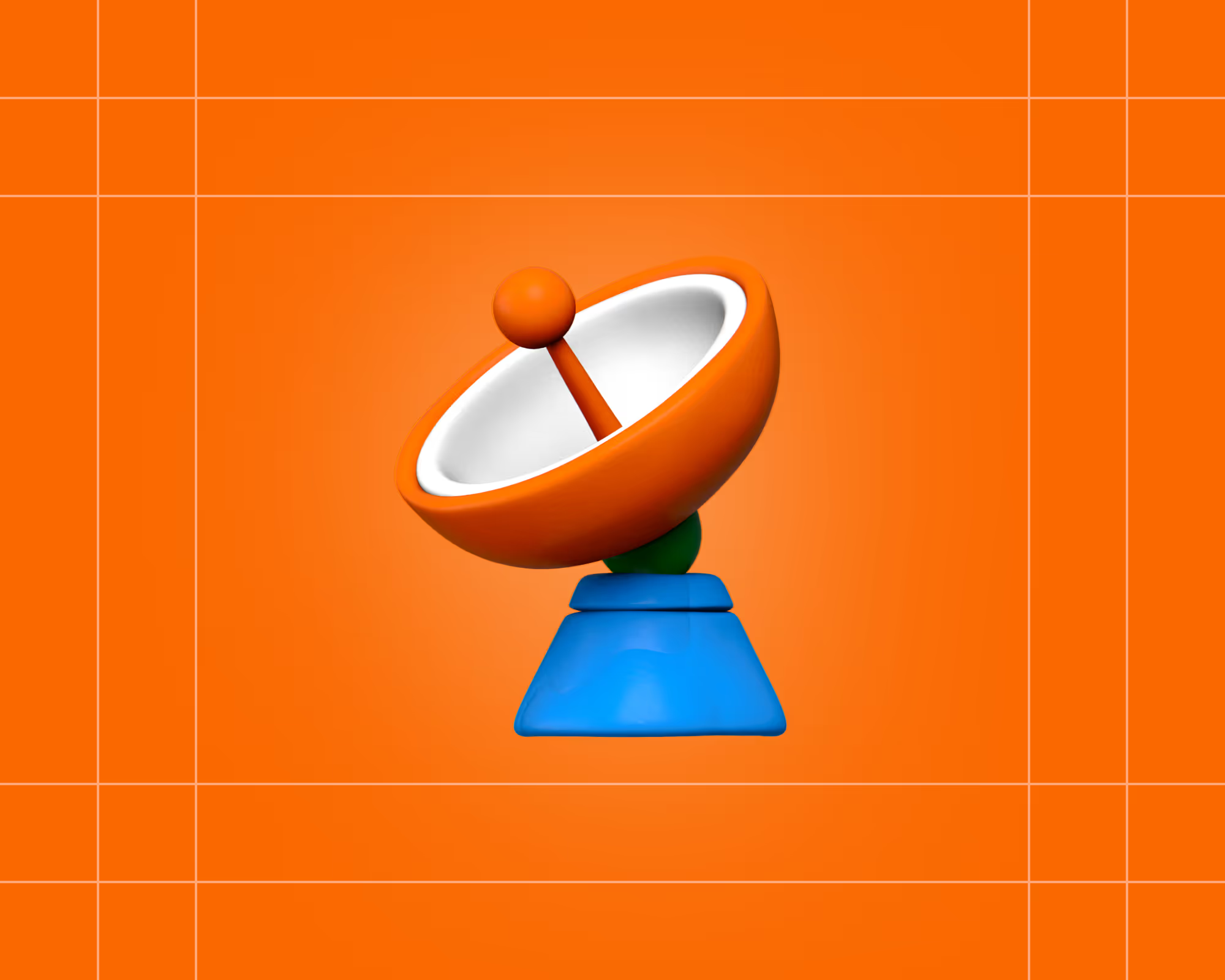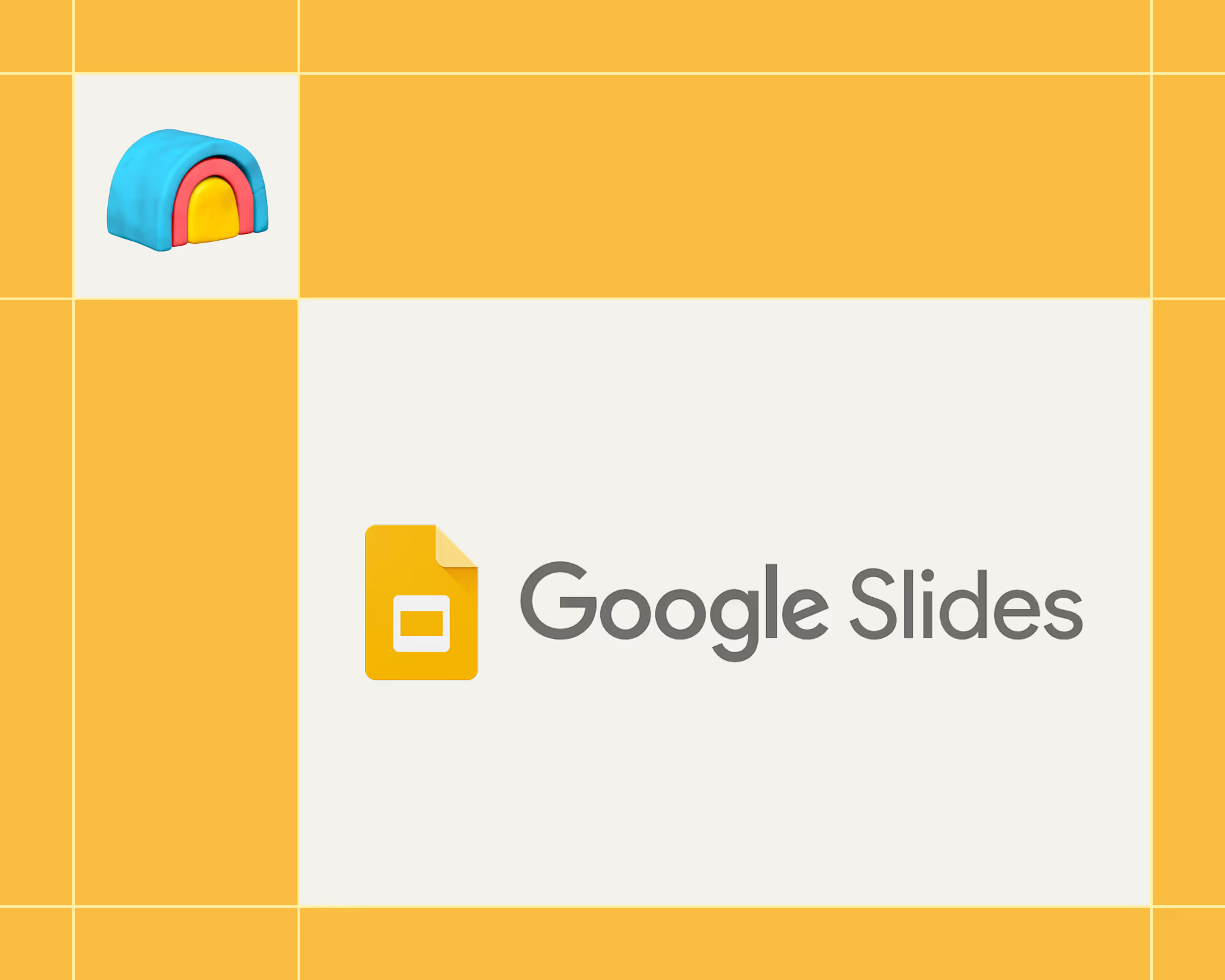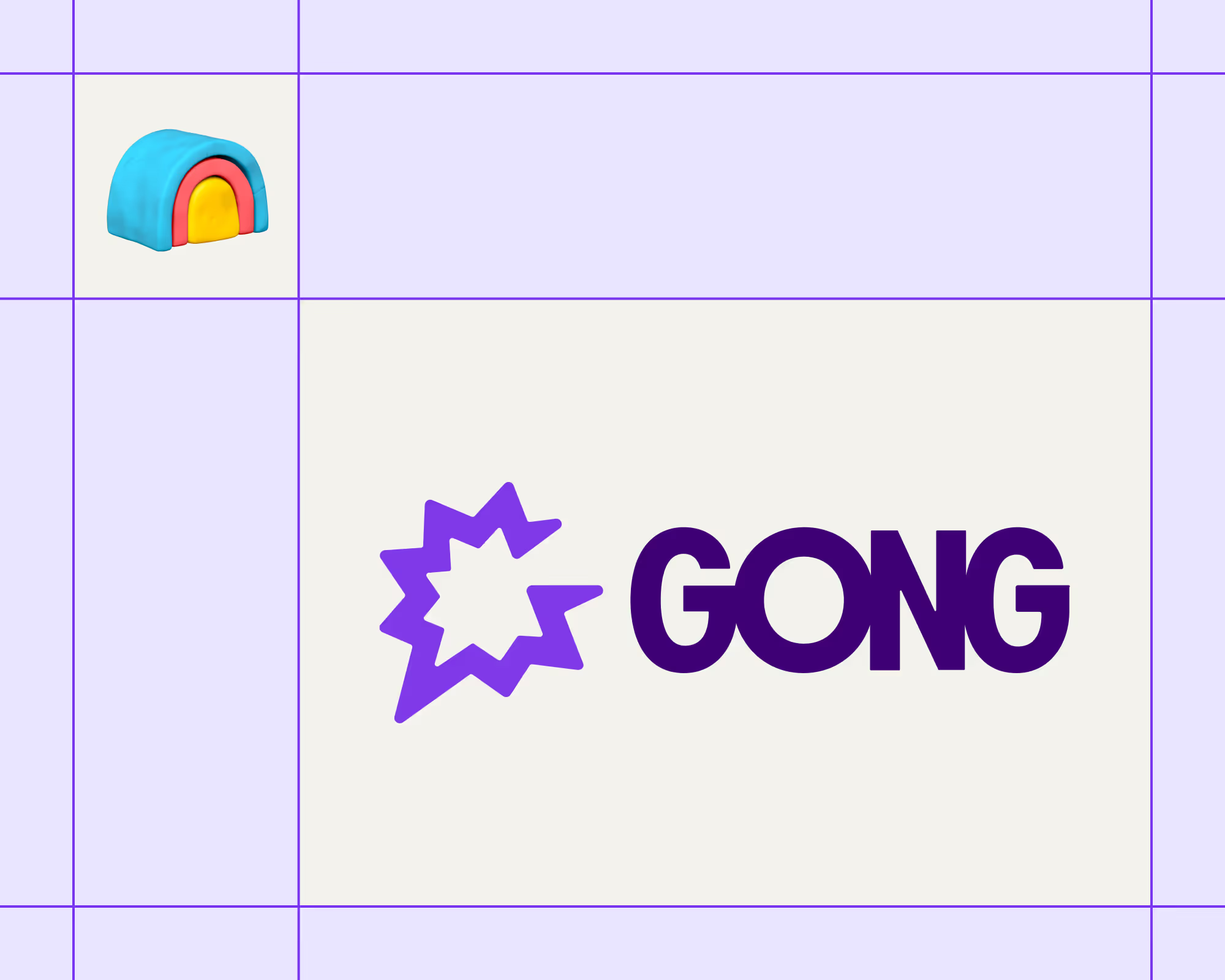According to a Salesforce survey, 81% of sales teams said they were investing in AI, with around half of them implementing it fully. Many businesses that have done so have achieved outstanding results—including us.
For example, we’ve completely automated a four-step campaign for our outbound sequences using AI, getting a 5.1% positive response rate.
While AI can be used across the sales process, AI sales training is among its most useful implementations. It can drastically improve the effectiveness of different training initiatives and make your program more engaging—but only if you implement AI properly.
In this guide, you’ll learn how to make this happen. We’ll teach you everything you should know about empowering your SDRs with the help of AI. 🧠
What Is AI Sales Training?

AI sales training is the practice of leveraging AI-enabled solutions to support or execute different forms of coaching. You can use it to help your SDRs develop and perfect various skills, such as:
- Active listening
- Problem solving
- Objection handling
- Persuasive communication
A solid AI sales coaching platform can either contribute to your current training program or completely replace some of its components. For example, you can replace one-on-one training with AI-powered sessions to free up more time and let your best-performing SDRs focus on closing deals instead of mentoring others.
The exact way AI can impact your existing approach to training largely depends on your chosen software and its features, which can accommodate various use cases.
Use Cases for AI Sales Coaching Solutions
Your preferred AI sales software can serve one or more of the following purposes:
- AI sales role-play
- Personalized training programs
- Ongoing performance assessments
- Training gamification
- Training resource development
Below we’ll cover each use case more comprehensively to show you what you can expect from AI sales training platforms.
AI Sales Role-Play

AI sales role-play training lets you simulate real-life sales meetings and other situations like discovery calls or customer complaints. It removes the need for in-person training by intelligently guiding your SDRs through these scenarios based on their input and responses. 🗣️
You can use pre-configured scenarios or create custom ones. Either way, the AI solution will listen to your SDR’s input and analyze it to provide various useful information, such as:
- Clarity and tone scores
- Attitude assessments
- Sales tactic suggestions
Personalized Training Programs
Each SDR has a unique skill set, which means uniform training won’t have the same amount of value for all your team members. To ensure everyone can do their best work, you need to take a personalized approach to coaching.
Traditional training methods might make this challenging because you need to invest considerable time and resources to tailor each program to match the trainee. With AI training, the process can be much smoother.
Besides customized role-play, your AI training platform can create individual training paths for each SDR to follow. This way, your team members can keep playing to their strengths while honing the areas with room for improvement. 🦾
Ongoing Performance Assessments

Real-time feedback is one of the most useful features of AI sales training platforms. Thanks to machine learning and natural language processing, a solid solution can assess sales interactions to offer insights into an SDR’s performance. 📊
For example, your platform can monitor different aspects of your SDR’s behavior during a sales call, such as:
- Eye contact
- Body language
- Facial expressions
The platform can then grade these factors and suggest effective changes much like a human mentor would. This way, your sales reps can keep improving after every sales initiative.
Training Gamification
Gamification is an excellent way to make sales training more engaging. AI can support it in various ways, most notably by:
- 📢 Creating challenges (generative AI is particularly useful here)
- 🥇 Setting milestones that adapt to the SDR’s performance
- ⚔️ Hosting virtual competitions
While you can gamify training without AI, this technology can take gamification to another level by creating immersive, adaptive experiences. The best part is that gamification won’t require as much manual work as it would if you did it without AI, so you can focus on other high-impact tasks.
Training Resource Development
Generative AI lets you create various content types you can use for sales training, most notably:
- Knowledge bases
- Presentations
- Worksheets
- Pitch ideas
This is one of the most common use cases because developing these materials can take a ton of time if done manually. With AI, you can have first drafts or even complete materials in minutes. ⚡
A capable AI platform can also analyze different datasets to help you generate reports effortlessly. Many solutions have data organization and visualization features, helping you create comprehensive reports to plan your future training initiatives.
Benefits of Using AI for Sales Training

Leveraging AI in your training strategies can benefit both your SDRs and business as a whole in various ways, most notably:
- Autonomous training—You can use an AI sales coach to provide a more independent training experience to your SDRs. Doing so enables on-demand learning unobstructed by schedules to ensure more freedom and flexibility
- Data-driven analytics—Unlike human mentors, AI can’t be subjective, which means your SDRs can get valuable feedback backed by cold data. This way, they can have clarity regarding areas of improvement
- Cost-effectiveness—Traditional sales training requires ongoing expenses both time and money-wise. AI training is often much more scalable and doesn’t require additional man-hours, contributing to your bottom line
- Increased efficiency—With AI, your SDRs don’t have to wait for performance reviews—all feedback can be delivered in real-time
- Easier onboarding—AI training is a crucial part of effective AI sales enablement. You can use various platforms to create robust materials in no time
- Long-term competitiveness—60% of businesses expect AI to facilitate sales growth. By implementing it across your sales cycle, you can ensure your business doesn’t fall behind the more tech-forward competitors
💡 Bonus read: If you want to explore other use cases of AI besides sales training, read our guides on AI lead scoring, AI-guided selling, AI in B2B sales, and using AI for cold calling.
Common Challenges With AI Sales Training Implementation
AI has been a buzzing topic for a few years now and has significantly evolved during this time. Still, there are both inherent and implementation-related obstacles you should look out for. Some of the key challenges are shown in the following table:
Best Practices for Adopting AI for Sales Coaching
While the above challenges might seem daunting, the benefits of AI training still outweigh the possible drawbacks. Besides, you can overcome the most common obstacles by following these adoption best practices:
- Take it one step at a time—Overhauling your entire training program in one go might be too overwhelming and lead to ineffective AI implementation. Start by leveraging AI in specific training aspects and build from there
- Ensure proper team education—While the change AI can bring to your training is positive, it’s still a change. Make sure your team gets adequate education and all the resources they need to make the transition as smooth as possible
- Understand your automation needs—Most AI training platforms focus on specific aspects of coaching. Consider the activities you can automate to get the most benefit and shop around for the most fitting solution
- Monitor results and adjust accordingly—To ensure your AI investment is paying off, track KPIs like the training completion rate and relevant sales metrics. By doing so, you can identify any areas of improvement and further tighten your workflow
How To Choose the Right AI Sales Coaching Software
Plenty of AI coaching platforms have surfaced in the past couple of years. To avoid analysis paralysis, filter your options according to the factors shown in the following table:
If you want to skip extensive research and find a platform that uses AI for sales training and many other processes, check out Clay.
Train Your Team and Convert Leads Faster With Clay

Clay is a comprehensive sales automation platform that offers plenty of useful AI-enabled features. The first solution that can streamline your training workflows is Claygent—an AI research agent and assistant that performs numerous tasks based on simple prompts.
Besides letting you perform extensive research you can use to develop robust training programs, Claygent leverages generative AI to create virtually all types of written material at scale. 📚
Claygent is powered by ChatGPT, so it lets you get the most out of OpenAI’s solution. If you want to perform additional tasks, you can use Clay’s OpenAI integration. Some of the key actions you can complete with it include:
- Asking ChatGPT questions using Clay inputs to generate quick responses
- Editing text with OpenAI
- Using image recognition to ask questions about images
- Generating images with OpenAI
Thanks to Clay’s generative AI capabilities, you can enrich your sales training with high-quality resources without painstaking manual work—and that’s only the beginning of the platform’s capabilities.
Enhance Processes Throughout the Sales Cycle With Clay

Clay doesn’t only improve your sales training—it comes with additional AI-enabled features to simplify processes across your sales cycle.
Firstly, you can choose from plenty of templates to automatically perform various tasks, such as:
- Generating target ICPs with AI
- Using Claygent to score prospects based on work history
- Automating pre-call research with Claygent
If you want to write content beyond training materials, use Clay’s AI message writer. It does an outstanding job of automatically creating highly personalized emails you can send to prospects to maximize the response rate. 📨
Some of the main writing jobs Clay’s message writer can complete include:
- Personalizing emails with the prospect’s main challenges
- Writing emails based on website data
- Mentioning product updates in emails
Want to learn more about Clay’s automated personalization? Check out this quick video:
You may be wondering where Claygent and the AI message writer pull all this data from. This brings us to Clay’s bread and butter—data enrichment.
Uncover Comprehensive Data Effortlessly
Even the most successful SDRs can’t sell without abundant prospect information, regardless of their skill level. To set your campaigns up for success from the get-go, Clay lets you find out virtually everything you need to know about your prospects. 🧑💼
The platform makes this happen thanks to several advanced features shown in the following table:
Besides these features, you can use Claygent to enrich with AI and get answers to specific questions about people and companies. Claygent and AI message writer will pull your enriched data automatically to perform the tasks we mention, and you can export data to your CRM and email sequencer or download it as a CSV file.
Maximize ROI With Clay’s Flexible Pricing
Clay offers a comprehensive free plan that lets you explore its AI features and data enrichment capabilities without time limits. To unlock the platform’s full potential, you can choose one of the following paid plans:
Each plan lets you choose the preferred amount of credits used for different tasks, letting you get the most out of your investment without waste. 💵
Don’t take our word for it—here’s what one user had to say about Clay:

Streamline Training and Other Sales Processes With Clay
If you want to step up your training programs and maximize the effectiveness of your outreach campaigns, you can sign up Clay in three easy steps:
- Visit the signup page
- Enter your name, email address, and password
- Explore Clay’s AI features and other capabilities
To learn more about Clay’s features and use cases, visit Clay University. Feel free to also join the ever-growing Slack community and sign up for the newsletter for product updates and useful tips
💡 Keep reading: Want to learn about additional ways to leverage AI in sales? Check out these guides:
According to a Salesforce survey, 81% of sales teams said they were investing in AI, with around half of them implementing it fully. Many businesses that have done so have achieved outstanding results—including us.
For example, we’ve completely automated a four-step campaign for our outbound sequences using AI, getting a 5.1% positive response rate.
While AI can be used across the sales process, AI sales training is among its most useful implementations. It can drastically improve the effectiveness of different training initiatives and make your program more engaging—but only if you implement AI properly.
In this guide, you’ll learn how to make this happen. We’ll teach you everything you should know about empowering your SDRs with the help of AI. 🧠
What Is AI Sales Training?

AI sales training is the practice of leveraging AI-enabled solutions to support or execute different forms of coaching. You can use it to help your SDRs develop and perfect various skills, such as:
- Active listening
- Problem solving
- Objection handling
- Persuasive communication
A solid AI sales coaching platform can either contribute to your current training program or completely replace some of its components. For example, you can replace one-on-one training with AI-powered sessions to free up more time and let your best-performing SDRs focus on closing deals instead of mentoring others.
The exact way AI can impact your existing approach to training largely depends on your chosen software and its features, which can accommodate various use cases.
Use Cases for AI Sales Coaching Solutions
Your preferred AI sales software can serve one or more of the following purposes:
- AI sales role-play
- Personalized training programs
- Ongoing performance assessments
- Training gamification
- Training resource development
Below we’ll cover each use case more comprehensively to show you what you can expect from AI sales training platforms.
AI Sales Role-Play

AI sales role-play training lets you simulate real-life sales meetings and other situations like discovery calls or customer complaints. It removes the need for in-person training by intelligently guiding your SDRs through these scenarios based on their input and responses. 🗣️
You can use pre-configured scenarios or create custom ones. Either way, the AI solution will listen to your SDR’s input and analyze it to provide various useful information, such as:
- Clarity and tone scores
- Attitude assessments
- Sales tactic suggestions
Personalized Training Programs
Each SDR has a unique skill set, which means uniform training won’t have the same amount of value for all your team members. To ensure everyone can do their best work, you need to take a personalized approach to coaching.
Traditional training methods might make this challenging because you need to invest considerable time and resources to tailor each program to match the trainee. With AI training, the process can be much smoother.
Besides customized role-play, your AI training platform can create individual training paths for each SDR to follow. This way, your team members can keep playing to their strengths while honing the areas with room for improvement. 🦾
Ongoing Performance Assessments

Real-time feedback is one of the most useful features of AI sales training platforms. Thanks to machine learning and natural language processing, a solid solution can assess sales interactions to offer insights into an SDR’s performance. 📊
For example, your platform can monitor different aspects of your SDR’s behavior during a sales call, such as:
- Eye contact
- Body language
- Facial expressions
The platform can then grade these factors and suggest effective changes much like a human mentor would. This way, your sales reps can keep improving after every sales initiative.
Training Gamification
Gamification is an excellent way to make sales training more engaging. AI can support it in various ways, most notably by:
- 📢 Creating challenges (generative AI is particularly useful here)
- 🥇 Setting milestones that adapt to the SDR’s performance
- ⚔️ Hosting virtual competitions
While you can gamify training without AI, this technology can take gamification to another level by creating immersive, adaptive experiences. The best part is that gamification won’t require as much manual work as it would if you did it without AI, so you can focus on other high-impact tasks.
Training Resource Development
Generative AI lets you create various content types you can use for sales training, most notably:
- Knowledge bases
- Presentations
- Worksheets
- Pitch ideas
This is one of the most common use cases because developing these materials can take a ton of time if done manually. With AI, you can have first drafts or even complete materials in minutes. ⚡
A capable AI platform can also analyze different datasets to help you generate reports effortlessly. Many solutions have data organization and visualization features, helping you create comprehensive reports to plan your future training initiatives.
Benefits of Using AI for Sales Training

Leveraging AI in your training strategies can benefit both your SDRs and business as a whole in various ways, most notably:
- Autonomous training—You can use an AI sales coach to provide a more independent training experience to your SDRs. Doing so enables on-demand learning unobstructed by schedules to ensure more freedom and flexibility
- Data-driven analytics—Unlike human mentors, AI can’t be subjective, which means your SDRs can get valuable feedback backed by cold data. This way, they can have clarity regarding areas of improvement
- Cost-effectiveness—Traditional sales training requires ongoing expenses both time and money-wise. AI training is often much more scalable and doesn’t require additional man-hours, contributing to your bottom line
- Increased efficiency—With AI, your SDRs don’t have to wait for performance reviews—all feedback can be delivered in real-time
- Easier onboarding—AI training is a crucial part of effective AI sales enablement. You can use various platforms to create robust materials in no time
- Long-term competitiveness—60% of businesses expect AI to facilitate sales growth. By implementing it across your sales cycle, you can ensure your business doesn’t fall behind the more tech-forward competitors
💡 Bonus read: If you want to explore other use cases of AI besides sales training, read our guides on AI lead scoring, AI-guided selling, AI in B2B sales, and using AI for cold calling.
Common Challenges With AI Sales Training Implementation
AI has been a buzzing topic for a few years now and has significantly evolved during this time. Still, there are both inherent and implementation-related obstacles you should look out for. Some of the key challenges are shown in the following table:
Best Practices for Adopting AI for Sales Coaching
While the above challenges might seem daunting, the benefits of AI training still outweigh the possible drawbacks. Besides, you can overcome the most common obstacles by following these adoption best practices:
- Take it one step at a time—Overhauling your entire training program in one go might be too overwhelming and lead to ineffective AI implementation. Start by leveraging AI in specific training aspects and build from there
- Ensure proper team education—While the change AI can bring to your training is positive, it’s still a change. Make sure your team gets adequate education and all the resources they need to make the transition as smooth as possible
- Understand your automation needs—Most AI training platforms focus on specific aspects of coaching. Consider the activities you can automate to get the most benefit and shop around for the most fitting solution
- Monitor results and adjust accordingly—To ensure your AI investment is paying off, track KPIs like the training completion rate and relevant sales metrics. By doing so, you can identify any areas of improvement and further tighten your workflow
How To Choose the Right AI Sales Coaching Software
Plenty of AI coaching platforms have surfaced in the past couple of years. To avoid analysis paralysis, filter your options according to the factors shown in the following table:
If you want to skip extensive research and find a platform that uses AI for sales training and many other processes, check out Clay.
Train Your Team and Convert Leads Faster With Clay

Clay is a comprehensive sales automation platform that offers plenty of useful AI-enabled features. The first solution that can streamline your training workflows is Claygent—an AI research agent and assistant that performs numerous tasks based on simple prompts.
Besides letting you perform extensive research you can use to develop robust training programs, Claygent leverages generative AI to create virtually all types of written material at scale. 📚
Claygent is powered by ChatGPT, so it lets you get the most out of OpenAI’s solution. If you want to perform additional tasks, you can use Clay’s OpenAI integration. Some of the key actions you can complete with it include:
- Asking ChatGPT questions using Clay inputs to generate quick responses
- Editing text with OpenAI
- Using image recognition to ask questions about images
- Generating images with OpenAI
Thanks to Clay’s generative AI capabilities, you can enrich your sales training with high-quality resources without painstaking manual work—and that’s only the beginning of the platform’s capabilities.
Enhance Processes Throughout the Sales Cycle With Clay

Clay doesn’t only improve your sales training—it comes with additional AI-enabled features to simplify processes across your sales cycle.
Firstly, you can choose from plenty of templates to automatically perform various tasks, such as:
- Generating target ICPs with AI
- Using Claygent to score prospects based on work history
- Automating pre-call research with Claygent
If you want to write content beyond training materials, use Clay’s AI message writer. It does an outstanding job of automatically creating highly personalized emails you can send to prospects to maximize the response rate. 📨
Some of the main writing jobs Clay’s message writer can complete include:
- Personalizing emails with the prospect’s main challenges
- Writing emails based on website data
- Mentioning product updates in emails
Want to learn more about Clay’s automated personalization? Check out this quick video:
You may be wondering where Claygent and the AI message writer pull all this data from. This brings us to Clay’s bread and butter—data enrichment.
Uncover Comprehensive Data Effortlessly
Even the most successful SDRs can’t sell without abundant prospect information, regardless of their skill level. To set your campaigns up for success from the get-go, Clay lets you find out virtually everything you need to know about your prospects. 🧑💼
The platform makes this happen thanks to several advanced features shown in the following table:
Besides these features, you can use Claygent to enrich with AI and get answers to specific questions about people and companies. Claygent and AI message writer will pull your enriched data automatically to perform the tasks we mention, and you can export data to your CRM and email sequencer or download it as a CSV file.
Maximize ROI With Clay’s Flexible Pricing
Clay offers a comprehensive free plan that lets you explore its AI features and data enrichment capabilities without time limits. To unlock the platform’s full potential, you can choose one of the following paid plans:
Each plan lets you choose the preferred amount of credits used for different tasks, letting you get the most out of your investment without waste. 💵
Don’t take our word for it—here’s what one user had to say about Clay:

Streamline Training and Other Sales Processes With Clay
If you want to step up your training programs and maximize the effectiveness of your outreach campaigns, you can sign up Clay in three easy steps:
- Visit the signup page
- Enter your name, email address, and password
- Explore Clay’s AI features and other capabilities
To learn more about Clay’s features and use cases, visit Clay University. Feel free to also join the ever-growing Slack community and sign up for the newsletter for product updates and useful tips
💡 Keep reading: Want to learn about additional ways to leverage AI in sales? Check out these guides:














.avif)








.avif)











.avif)
.avif)






















































